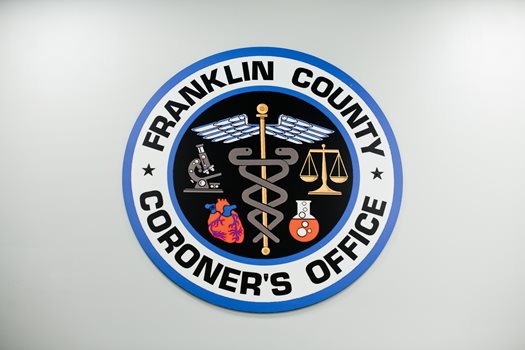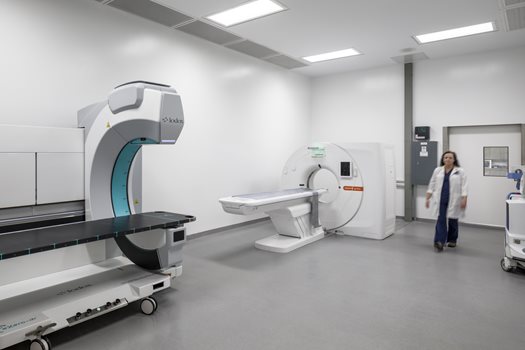Pathology Department
Forensic Pathology is the study of how injury and/or disease affect a person resulting in death. An autopsy is a detailed medical examination of the body, performed by a Forensic Pathologist, to determine the presence, nature, and extent of any disease or injury in order to ascertain the cause and manner of death.
At the Franklin County Forensic Science Center there are six Forensic Pathologists who, as Deputy Coroners, analyze the circumstances surrounding the death and determine whether an autopsy is indicated. Autopsies are performed at the discretion of the team of pathologists. For cases in which an autopsy is not indicated, an external examination is performed. An autopsy consists of the gross external and internal examination of a body with documentation of injuries and natural disease. Additional studies such as microscopic examination, immunohistochemistry, special tissue staining, toxicology, bacterial and viral cultures, molecular testing, sexual assault examinations, and analyses for inborn errors of metabolism are utilized as needed.

Investigations of deaths in childhood help to confirm or allay any suspicions of abuse in cases of Sudden Unexpected Infant Deaths (SUID). If the manner of death is certified as a homicide, the Forensic Pathologist may be asked to provide unbiased expert testimony utilizing the autopsy findings at the Grand Jury or in the Court of Common Pleas. Regardless of the manner of death, the Forensic Pathologist may be required to give expert testimony in civil trials and proceedings as to the specific cause of death; for example, auto accidents or work-related accidents.
Not all autopsies reveal the cause of death even after thorough medical and police investigations are concluded. These cases are certified "undetermined" and can occur for a variety of reasons. Some causes of natural deaths, such as abnormal heart beat, do not leave anatomical clues and may be difficult or impossible to document after death.

The Forensic Pathologists participate in meetings at the Columbus Department of Public Health where they present specific case findings during the Traffic Fatality Review, Child Fatality Review, and SUID Review. These reviews occur quarterly to monthly and help to look for patterns that may be used to decrease mortality in our community. The Franklin County Forensic Science Center has formal agreements with Nationwide Children’s Hospital, The Ohio State University, and Ohio University for teaching purposes. The Forensic Pathologists play a vital role in teaching future pathologists, medical students, nurses, various other medical professionals, and law enforcement officers.